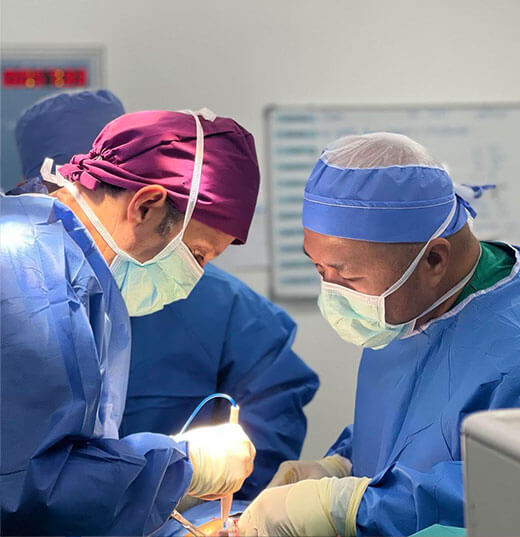
May 21, 2023
The Positive Influence Of Gastric Balloon on Gut Microbiota
May 21, 2023

The primary role of gut microbes
Gut microbes are vital in many aspects of human health, including immune, metabolic, and neurobehavioral traits. The gut microbiota directly impacts human health by providing essential capacities for the fermentation of non-digestible substances like dietary fibers. These changes in microbiota levels affect human health significantly.
Many non-communicable diseases, such as obesity, type 2 diabetes, asthma, allergies, atopic diseases, inflammatory bowel disease, metabolic syndrome, necrotizing enterocolitis, and atherosclerosis, are closely associated with the intestinal microbiota.
Obesity and gut microbiota
Obese people have fewer Bacteroides and more Firmicutes in their microbiota than people with a healthy weight. Saturated fatty acid-rich diets lead to hepatic steatosis and obesity, increasing the Firmicutes/Bacteroidetes ratio in the intestinal microbiota.
Fat and carbohydrate-restricted diets and body weight loss increase the number of bacteroidetes. Post-bariatric surgery, significant changes are noticed in the intestinal microbiota. This is why intestinal microbiota modification may be a potential therapeutic treatment for preventing or reversing obesity.
Post-surgery modifying food choices and dietary practices can make the results more effective in controlling obesity. In addition, diet therapy after bariatric surgery also causes changes in microbiota, preventing further weight gain.
Positive influences of bariatric surgery
The highly effective bariatric surgery – gastric balloon positively impacts a patient’s gut microbiota. Bariatric surgery is an effective treatment for type 2 diabetes (T2D) that changes gut microbial composition.
After removing the gastric balloon after a 6-12 month period, common species of balloon biofilms will resemble that of the healthy human gastric mucosa and contain: Actinobacteria, Bacteroidetes, Firmicutes, Fusobacteria, Patescibacteria, and Proteobacteria.
Gastric balloon bariatric surgery improves glycaemic control, alters upper gut intestinal morphology, and lowers Sglt1-mediated intestinal glucose absorption, improving blood glucose control independently from changes in obesity, insulin, or insulin resistance.
Gut microbiota after bariatric surgery lowers intestinal glucose absorption. Patients after bariatric surgeries have better glucose tolerance. The gut microbiota post-surgery contains microbes that can lower blood glucose. However, gastric balloon placement will not change insulin secretion, clearance, or resistance.
As patients with morbid obesity have increased intestinal glucose absorption, gastric balloon placement positively impacts their lives post-surgery.
Amongst the broad spectrum of weight reduction interventions available, bariatric surgeries, including gastric balloon, gastric banding, and Revisional Gastric Banding, are becoming healthy and sustainable solutions. Bariatric surgery can kick off successful weight loss when other lifestyle interventions are unsuccessful. Thus, successful weight maintenance was shown mainly in the lower BMI groups after balloon removal.
Conclusion
As gastric banding and ballooning are potentially reversible interventions, it is both healthy and beneficial for people considering these options. In addition, bariatric surgery interventions facilitate weight loss and increase the motivation to continue lifestyle efforts. Most importantly, the low-invasive procedures promote lower rates of side effects, making it a viable option for healthy weight loss.

Contact Dr. Samir if you have any questions

02 Jumeirah Beach Rd - opposite Burj Al Arab - Umm Suqeim - Jumeirah 3 - Dubai
9am-9pm (Saturday- Thursday)
9am-6pm (Saturday)
